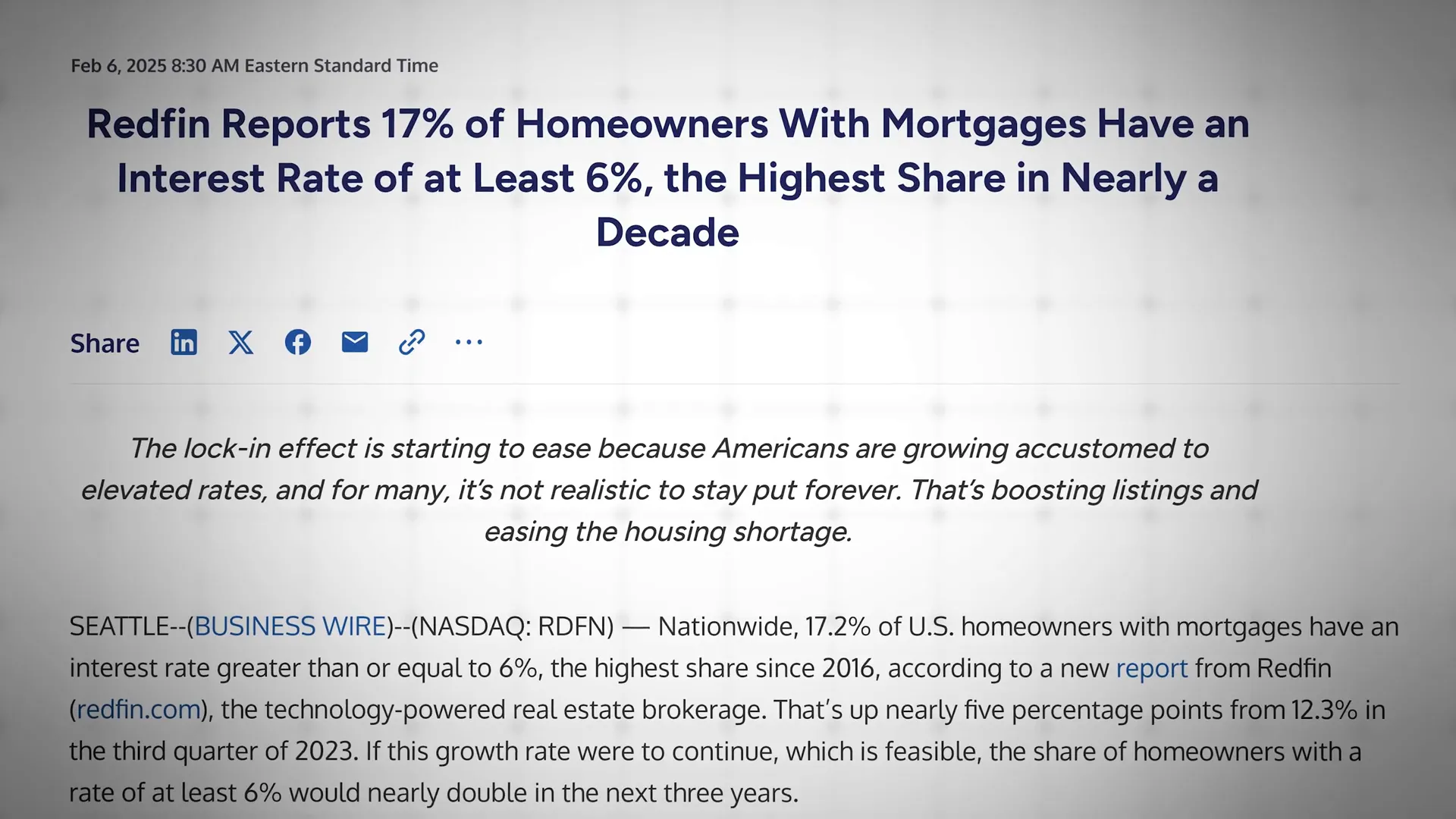
Everyone keeps waiting for the housing market to crash. But what if the market is already crashing—just not in the way anyone expected? This time, it’s less of a sudden “2008-style implosion” and more like a frog slowly boiling in water. The housing market is fundamentally unaffordable, gridlocked by design, and quietly eroding the path to middle-class wealth. In this article, we’ll unpack why the housing crisis today is far worse than 2008, what’s driving it, and why even cryptocurrency and bitcoin enthusiasts should pay close attention.
Table of Contents
- The 2020s Housing Market: A Perfect Storm of Affordability Issues
- Cracks Beneath the Surface: Delinquency and Market Vulnerabilities
- Postcards from a Global Housing Crisis
The 2020s Housing Market: A Perfect Storm of Affordability Issues
Monthly housing payments have been steadily rising, with some regions seeing increases of up to 18%, making homeownership increasingly out of reach for many. A recent study from the University highlights how a shortage of skilled workers has cost the construction sector trillions of dollars, delaying the completion of nearly 19,000 single-family homes in recent years. This supply crunch has created a strangled market where demand far outpaces supply, driving prices and payments higher.
But this is only part of the story. The real issue lies not just in demand but in who is investing in housing and how that shapes the market dynamics. The traditional middle-class buyer is being squeezed out, while institutional investors and large firms are increasingly dominating home purchases, turning them into rental properties or investment assets rather than places to live.
Supply Constraints and Distorted Demand
- Skilled labor shortages are delaying new home construction.
- Institutional investors are buying up single-family homes, reducing availability for typical buyers.
- Rising monthly payments are pushing affordability to a breaking point.

Cracks Beneath the Surface: Delinquency and Market Vulnerabilities
What’s truly alarming are the early warning signs emerging beneath the surface of the housing market. States like Florida, South Carolina, and Georgia, which have seen some of the lowest increases in delinquency rates, are outliers in an otherwise troubling landscape. Florida, in particular, stands out with six major markets showing worrying trends.
New analyses of commercial mortgage-backed securities reveal that about 6.42% of borrowers are 30 or more days delinquent—numbers that indicate growing financial stress. Office property delinquency rates hover at 7.1%, but the rate of loans transferred to special servicing—a sign of deeper financial trouble—has hit a 25-year high at 16.95%. These figures suggest that even commercial real estate, often seen as a safer asset class, is under pressure.
These cracks are signs that the housing market is not just unaffordable but also increasingly unstable. As defaults and delinquencies rise, the risk of a broader market correction looms, but unlike 2008, it’s not driven by reckless lending alone. Instead, it’s a complex web of affordability, supply constraints, and investor behavior.

Why This Matters to Cryptocurrency and Bitcoin Investors
At first glance, the housing market might seem disconnected from the world of cryptocurrency and bitcoin. However, the two are linked through broader financial ecosystems and wealth-building strategies. Here’s why cryptocurrency enthusiasts should keep an eye on this unfolding crisis:
- Economic Ripple Effects: A housing crisis impacts consumer spending, banking stability, and investment flows—factors that influence crypto markets indirectly.
- Alternative Wealth Storage: As traditional assets like real estate become less accessible, more people may turn to cryptocurrencies like bitcoin as alternative stores of value.
- Institutional Investor Behavior: Large institutional players active in real estate are also increasingly involved in crypto markets, meaning shocks in one can affect the other.
Understanding the housing market’s current fragility helps cryptocurrency investors anticipate potential market shifts and diversify strategies accordingly.
Postcards from a Global Housing Crisis
The housing crisis isn’t isolated to the U.S. alone. Globally, affordability challenges and supply shortages are creating similar pressures, affecting millions of people’s ability to build wealth through homeownership. This global context adds layers of complexity and urgency to the issue.
For those invested in cryptocurrency and bitcoin, monitoring these trends is crucial. Housing markets reflect broader economic health, and their distress signals can serve as early indicators for other asset classes.
Ultimately, the housing market today is a slow-burning crisis that’s reshaping the financial landscape. It’s not about waiting for a dramatic crash but understanding how an unaffordable and rigid market quietly undermines economic stability and opportunity.
Stay informed, diversify your investments, and consider how assets like cryptocurrency and bitcoin fit into this evolving picture of wealth and risk.
This Housing Crisis Is Way Worse Than 2008…Here’s Why Cryptocurrency and Bitcoin Investors Should Care. There are any This Housing Crisis Is Way Worse Than 2008…Here’s Why Cryptocurrency and Bitcoin Investors Should Care in here.
